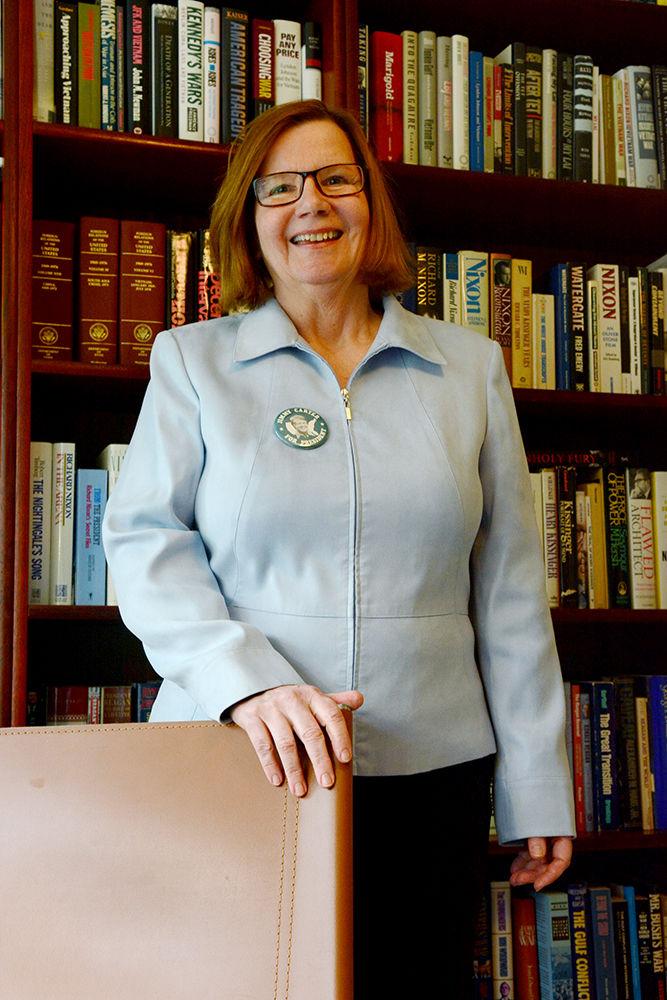History professor Nancy Mitchell sat in a modest living room with a beautiful view in Atlanta, but it wasn’t the view or the city that captivated her attention, it was the man sitting across from her: ex-president Jimmy Carter.
Mitchell, who has worked at NC State for over 20 years, has been researching Carter for the past 15 years and in 2003, after writing just one letter to him, she received a call from his personal assistant saying that she would have the opportunity to interview Carter for one hour.
“I couldn’t believe it,” Mitchell said. “I wrote to him really before I was ready to interview him because I thought I would have to write 100 more letters before I got a response.”
Though Mitchell felt that she was not ready to interview him, she had conducted extensive research, from archives all over the world, into his life and presidency, specifically his involvement in Africa.
“I did a lot of research in foreign archives because no matter what you’re studying in diplomatic history, what you want to do is try to understand it from multiple points of view to get a more accurate picture of what was really happening,” Mitchell said.
Though Carter is most known for the Camp David Accords, which established a framework for peace between Egypt and Israel, Mitchell decided to study one of the situations in Africa that Carter inherited due to the Cold War.
In 1975, 36,000 Cuban troops landed in Angola in Western Africa to stop an invasion of a South African army, which had been encouraged by the United States. The conflict turned into a “cold war battle by proxy,” meaning that it was not the United States directly fighting against the Soviet Union but rather South Africans, encouraged by the United States, fighting against Cubans who had strong ties to communism and the Soviet Union.
“Carter inherited that situation and no one had done in-depth research on it,” Mitchell said. “He even told me that he spent more time on Rhodesia, now modern day Zimbabwe, than he did on the Middle East. Almost nobody realized how important Africa was to the presidency.”
Another African crisis was a war in the Horn of Africa between Somalia and Ethiopia. Ethiopia had been an American ally but the country underwent radical revolutions in 1974, ultimately turning away from the U.S. and towards the Soviet Union. On the other hand, Somalia had been the most important Soviet Union ally in sub-Saharan Africa and it was attempting to get American aid.
“It was like a square dance where they were switching partners and it really embodies the complexity of the Cold War and how interesting it was on the periphery,” Mitchell said.
Due to her research’s focus on Carter’s involvement in Africa, Mitchell decided to use the interview to delve deeper into the subject and supplement the book that she was writing about his presidency.
“His memory was unbelievable,” Mitchell said. “I had interviewed a lot of people for my book and people remember very well but they often times forget the series of events. Carter didn’t make any mistakes, and after I transcribed the interview, I discovered that it was all in complete sentences.”
At the end of the hour, Mitchell asked Carter why he had decided to grant her the opportunity to interview him. Though he did not tell her exactly why, he did say that he appreciated a review that she had written about a memoir of his childhood.
The interview with Carter did more than help with her book, it also“opened the door” for Mitchell to interview other exceptional people such as the ex-president of Zambia, British Foreign Secretary and Carter’s National Security Advisor.
Mitchell published her book, “Jimmy Carter: Race and the Cold War,”in 2016. It has been awarded the 2016 Douglas Dillon Award, a prestigious honor given by the American Academy of Diplomacy to the best book about the process of diplomacy, the Society of Historians of American Foreign Relations’ Robert Ferrell Prize, and the Choice Outstanding Book award.
“Nancy Mitchell has written a masterpiece, the book that every scholar — myself included — dreams of writing,” Piero Gleijeses, a professor of United States foreign policy at the Paul H. Nitze School of Advanced International Studies at Johns Hopkins University, said. “I cannot think of a book that is more profound, better researched and superbly written. I only wish I were the author.”
Mitchell has not been able to receive another opportunity to interview Carter, but now she is conducting broader research into the Cold War while she teaches in the History Department at NC State. Though her research into the Cold War has continued, she will never forget her remarkable interview with Carter, not only because it helped her career but because of Carter himself.
“He was one of those people who listened, and answered my questions in a way that made me feel that he was being honest and direct,” Mitchell said. “He seemed 100% there and did not seem guarded. He was just answering how any human being would answer.”













